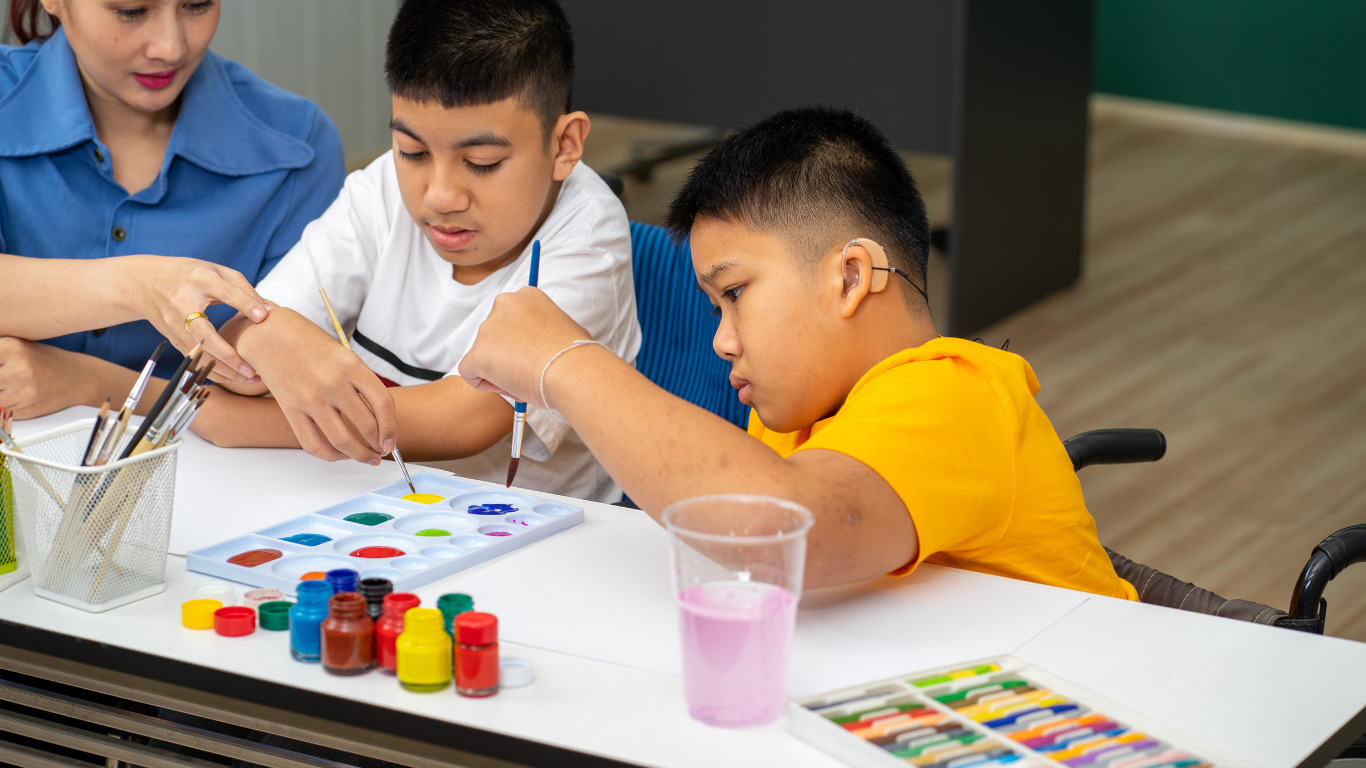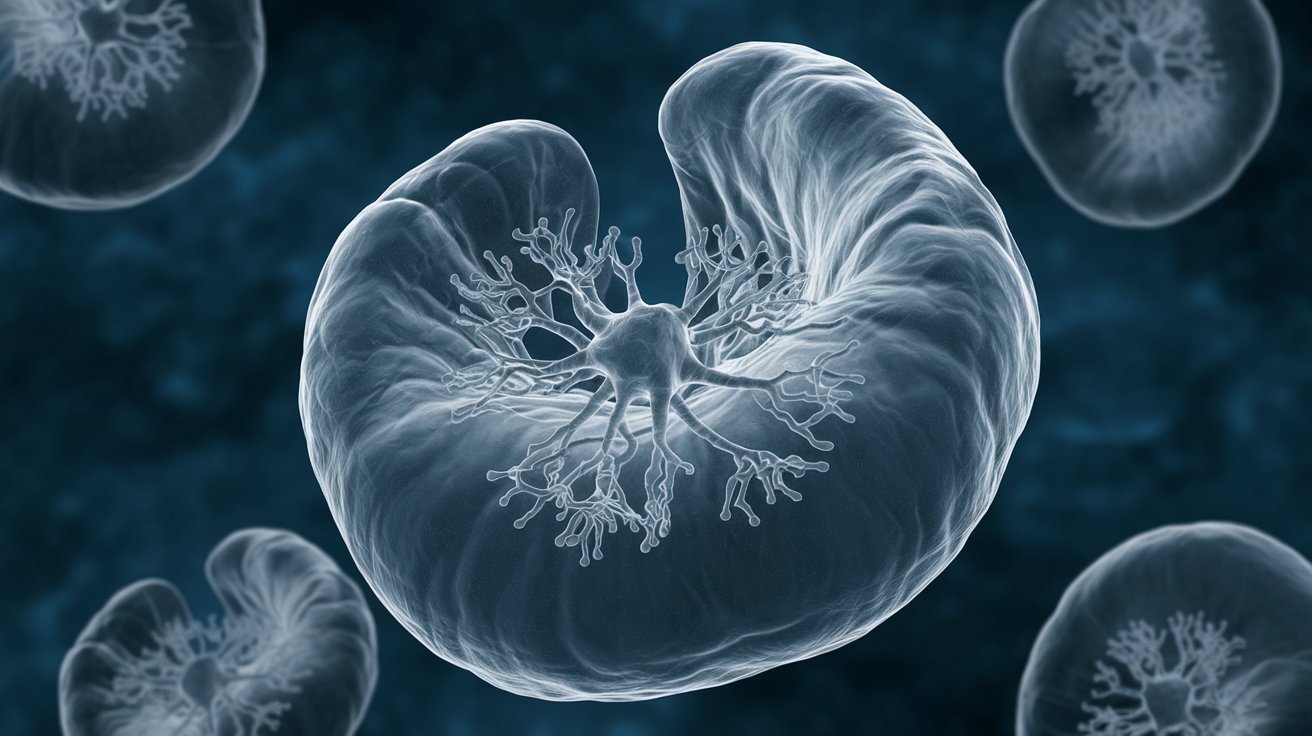
What is Landau-Kleffner Syndrome? Imagine your child suddenly losing the ability to speak or understand language after developing normally. This is the reality for families dealing with Landau-Kleffner Syndrome (LKS), a rare neurological disorder. Affecting children typically between ages 3 and 7, LKS is marked by a sudden or gradual loss of language skills, often paired with seizures and abnormal brain activity during sleep. More common in boys, this condition can be challenging to diagnose due to its similarity to other disorders like autism. Understanding LKS is crucial for early intervention and effective treatment, offering hope for better outcomes.
Key Takeaways:
- Landau-Kleffner Syndrome (LKS) is a rare neurological disorder affecting children, causing language regression and seizures. Genetic factors and immune system involvement play a role, making accurate diagnosis and tailored treatment crucial.
- Children with LKS may experience language recovery with treatment, but the condition varies widely in its clinical presentation. Support groups like Friends of LKS (FOLKS) and Contact a Family offer valuable assistance to affected families.
Understanding Landau-Kleffner Syndrome
Landau-Kleffner Syndrome (LKS) is a rare and complex neurological disorder that primarily affects children. It involves the sudden or gradual loss of language skills, often accompanied by abnormal brain activity and seizures. Let's dive into some key facts about this intriguing condition.
-
Definition and Naming
Landau-Kleffner Syndrome is named after William Landau and Frank Kleffner, who first described the condition in 1957. It's also known as infantile acquired aphasia or acquired epileptic aphasia. -
Age of Onset
LKS typically appears in children between the ages of 3 and 7 years. However, it can show up as early as 18 months or as late as 13 years. -
Symptoms
The main symptoms include language regression, such as the inability to recognize familiar sounds (auditory verbal agnosia) and difficulty in understanding or expressing language (aphasia). Behavioral issues like hyperactivity and temper outbursts are also common.
EEG Abnormalities and Seizures
A hallmark of LKS is its impact on brain activity, often detected through EEG tests. Seizures are another significant aspect of the syndrome.
-
EEG Abnormalities
Abnormal EEG findings, especially during non-REM sleep, are a key feature. These often include continuous spike-waves during slow sleep (CSWS). -
Seizures
About 70% of children with LKS experience seizures. These can be focal with or without awareness changes or atypical absence seizures.
Gender and Genetic Factors
Understanding who is more likely to be affected by LKS and the potential genetic underpinnings can provide valuable insights.
-
Gender Prevalence
LKS is more common in males than females, with a male-to-female ratio of approximately 1.7:1. -
Genetic Factors
Genetic mutations, particularly in the GRIN2A gene, are believed to play a role. This gene codes for a part of the NMDA glutamate-gated ion channel receptor, and mutations have been found in up to 15% of LKS cases.
Immune System and Behavioral Challenges
The immune system might also be involved in LKS, and behavioral challenges are a significant aspect of the condition.
-
Immune System Involvement
Autoimmune and inflammatory mechanisms may contribute to LKS. Some patients respond to immunosuppression, suggesting the immune system's role. -
Behavioral Challenges
Children with LKS often face behavioral issues like irritability, hyperactivity, and aggression. These can be worsened by certain medications and require careful management.
Diagnostic Challenges and Criteria
Diagnosing LKS can be tricky due to its similarity to other conditions. Specific criteria and tests are essential for accurate diagnosis.
-
Diagnostic Challenges
LKS can be mistaken for conditions like autism, hearing impairment, or learning disabilities. An EEG test during sleep is crucial for diagnosis. -
Diagnostic Criteria
Diagnosis requires language regression and abnormal EEG findings, especially during non-REM sleep. Additional tests like magnetoencephalography and MRI may be used to rule out other issues.
Treatment Approaches
Various treatment options are available for managing LKS, from medications to speech therapy.
-
Treatment Approaches
Antiepileptic drugs like divalproex, ethosuximide, levetiracetam, and benzodiazepines are commonly used. Some suggest combining corticosteroids with pulse benzodiazepines. Immunoglobulins and a ketogenic diet are less common treatments. -
Speech and Language Therapy
Speech and language therapy is vital for helping children regain communication skills. Augmentative and alternative communication devices, like sign language, can also be beneficial.
Educational and Surgical Interventions
Educational support and, in some cases, surgical interventions can play a role in managing LKS.
-
Educational Interventions
Special education classes tailored for severe speech and language disorders can improve outcomes. A multidisciplinary team approach is essential. -
Surgical Interventions
Multiple subpial transection was once considered for persistent language loss. However, recent reviews show it doesn't offer significant benefits over natural recovery and is no longer recommended.
Epidemiology and Clinical Presentation
Understanding the prevalence and varied clinical presentation of LKS can help in recognizing and managing the condition.
-
Epidemiology
LKS is rare, affecting about one child in a million. It's more common in boys and doesn't typically run in families. -
Clinical Presentation
Symptoms vary widely. Some children have only electrographic seizures, while others experience clinical seizures, behavioral disorders, and social cognitive deficits.
Language Recovery and Research Initiatives
The prognosis for language recovery varies, and ongoing research aims to improve understanding and treatment of LKS.
-
Language Recovery
Language recovery prospects differ. Earlier onset often means poorer recovery, but some children improve significantly with treatment. -
Research Initiatives
Efforts to advance knowledge and management of LKS include clinical databases and genetics studies. Participation in research is optional and doesn't affect treatment.
Support and Resources
While support groups for LKS are limited, other organizations can provide valuable assistance.
- Support and Resources
No active LKS-specific support group exists in the UK, but organizations like Friends of LKS (FOLKS) and Contact a Family offer support and connections for affected families.
Understanding Landau-Kleffner Syndrome
Landau-Kleffner Syndrome (LKS) is a rare neurological disorder that primarily affects children, leading to a sudden or gradual loss of language skills and often accompanied by seizures. It typically appears between ages 3 and 7, with boys being more commonly affected. Diagnosing LKS can be tricky due to its similarities with other conditions like autism and hearing impairments. Key diagnostic tools include EEG tests during sleep and brain imaging. Treatment often involves antiepileptic drugs, speech therapy, and sometimes immunosuppressive therapies. While the prognosis varies, early intervention can significantly improve language recovery. Special education and a multidisciplinary approach are crucial for managing the condition. Ongoing research and support networks continue to provide hope and resources for affected families. Understanding LKS is essential for offering effective care and improving the quality of life for those impacted by this challenging condition.
Frequently Asked Questions
Was this page helpful?
Our commitment to delivering trustworthy and engaging content is at the heart of what we do. Each fact on our site is contributed by real users like you, bringing a wealth of diverse insights and information. To ensure the highest standards of accuracy and reliability, our dedicated editors meticulously review each submission. This process guarantees that the facts we share are not only fascinating but also credible. Trust in our commitment to quality and authenticity as you explore and learn with us.


